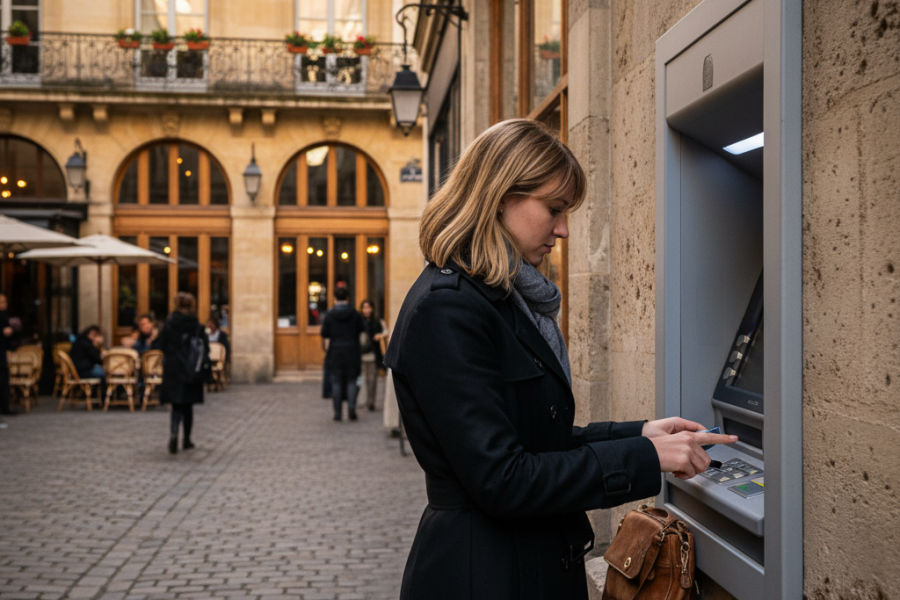The Real Cost of Traveling Abroad
International travel can be exciting — until hidden fees start draining your budget. From currency conversions to ATM withdrawals, small charges can add up quickly.
Most travelers don’t realize how many hidden travel fees they pay until they check their statements later. But with a little planning and awareness, you can travel smarter, keep your money safe, and avoid unnecessary costs.
1. Watch Out for Dynamic Currency Conversion (DCC)
When you pay by card abroad, some merchants offer to charge you in your home currency instead of the local one. It sounds helpful — but it’s a trap.
This feature, called Dynamic Currency Conversion, often adds a 3–5% markup to your bill. Always choose to pay in the local currency to get a fair exchange rate.
2. Avoid ATM Withdrawal Fees
ATMs abroad can charge both local and home bank fees. Some even add currency conversion charges. To avoid this:
-
Use ATMs from global banks that partner with your home bank.
-
Withdraw larger amounts less frequently to minimize per-transaction fees.
-
Use cards like Wise or Revolut that offer free or low-fee international withdrawals.
If you must withdraw cash often, check for fee-free ATMs in your destination using Google Maps or traveler apps.
3. Choose the Right Travel Card
Not all cards are travel-friendly. Some credit and debit cards charge foreign transaction fees — typically 2–4% per purchase.
Before traveling, check your bank’s policies and choose a travel-specific card that waives these fees. Cards from providers like Niyo Global, Revolut, or Chase Sapphire are designed for international use and help you save every time you swipe.
4. Understand Hotel and Booking Fees
Many travelers get surprised by “extra” charges at check-in or check-out. Resort fees, city taxes, and service charges can increase your hotel bill significantly.
When booking online, always read the fine print. Websites often show prices before taxes or fees. To avoid confusion, book directly through the hotel or use platforms that show final inclusive prices.
5. Disable International Roaming Charges
While not a money transaction, roaming fees are one of the sneakiest travel costs. A few hours of GPS or data use abroad can cost as much as a hotel stay.
Use local SIM cards, portable Wi-Fi, or global eSIM services like Airalo or Ubigi. These give you affordable internet without surprise charges.
6. Be Smart About Currency Exchange
Many travelers unknowingly lose money during currency exchange. Avoid airport counters and “zero commission” traps. Instead:
-
Use trusted banks or ATMs in the city.
-
Compare rates using apps like XE Currency.
-
Carry a mix of cash and cards for flexibility.
Tip: Read our guide — Currency Exchange Tips Every Traveler Should Know — for a full breakdown of how to get the best rates abroad.
7. Keep an Eye on International Bank Transfers
Sending money abroad through banks can come with high fees and poor conversion rates. Instead, use services like Wise, Remitly, or PayPal that are transparent and cheaper for small transfers.
Always check both the transfer fee and the exchange rate margin — many providers hide profits in inflated rates.
Travel Smart, Spend Wisely
Hidden travel fees can quietly eat into your vacation budget, but they’re easy to avoid once you know where to look. By planning ahead, comparing rates, and using the right tools, you can make every dollar go further.
Traveling abroad shouldn’t come with financial surprises — just unforgettable experiences. So next time you pack your bags, remember: a smart traveler is not just one who explores, but one who saves while exploring.






Leave a Comment